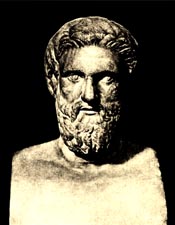Wealth
, translated by Theodoridis, G., (contributor-contact-email)
Aristophanes’ play Wealth (Plutus), first staged in 388 BCE, is a comedy that explores themes of wealth distribution and morality in Athens. The story follows Chremylos, a virtuous but impoverished Athenian, and his slave Cario. Chremylos, following the oracle of Apollo, encounters the god of wealth, Plutus, who is ironically a blind beggar. Chremylos convinces Plutus to come to his home to have his vision restored, believing that once Plutus can see, wealth will be distributed to the deserving.
The play discusses the random nature of wealth distribution and questions the correlation between virtue and wealth. The narrative evolves with the goddess Penia (Poverty) presenting a counterargument that poverty is essential for maintaining societal order and motivation for work. Upon Plutus regaining his sight, the world experiences a social and economic upheaval, leading to discontent among those who lose their wealth. The play concludes with the god Hermes, concerned about the neglect of traditional gods due to Plutus’ restored vision. Concerned for his own position he actually offers to serve mortals and enters Chremylos’s house as a servant.
Wealth highlights the complexity of wealth and virtue, while satirizing Athenian society and its moral values.

Theodoridis, G.,
Support Open-Access:
Your contribution keeps our classical translations available to all. Every dollar helps support classics education and funds the expansion of our catalogue. Value what we do? Donate now.
File Downloads:
© Copyright, All Rights Reserved. This work may be freely reproduced, stored and transmitted, electronically or otherwise, for any non-commercial purpose. Conditions and Exceptions apply.